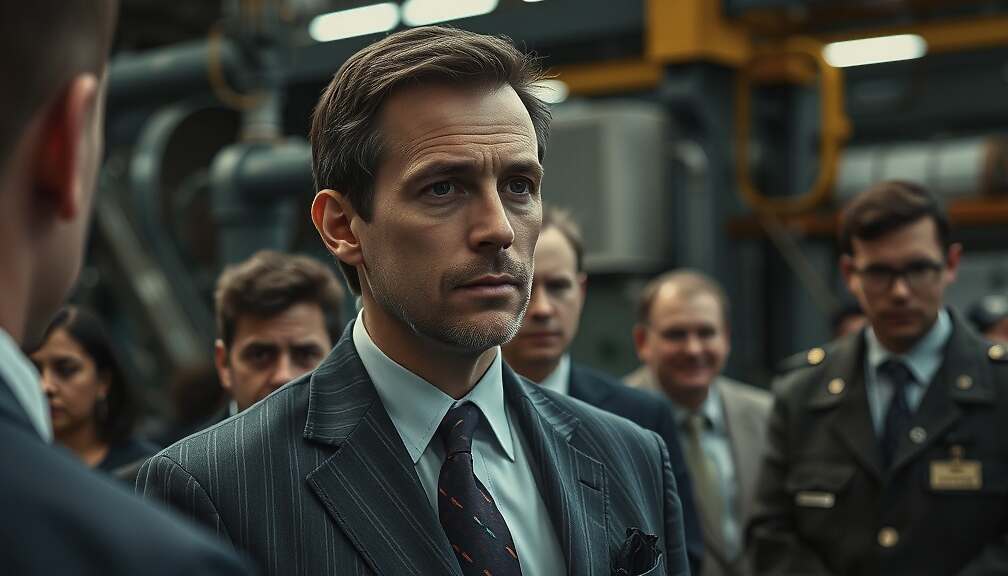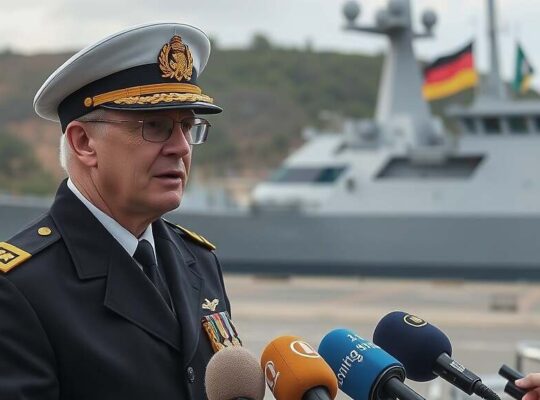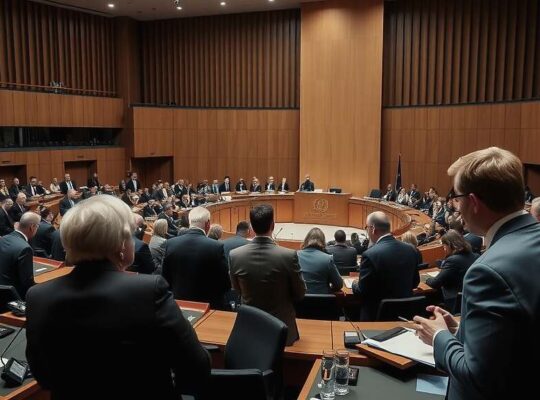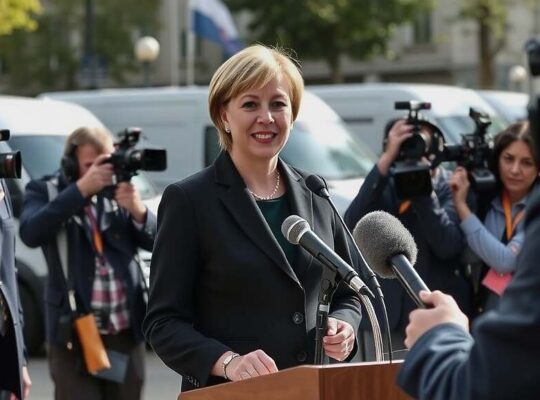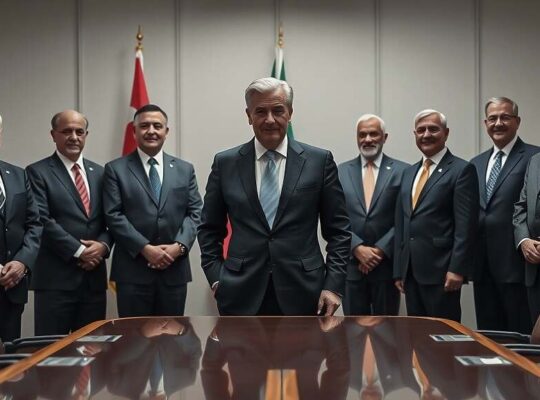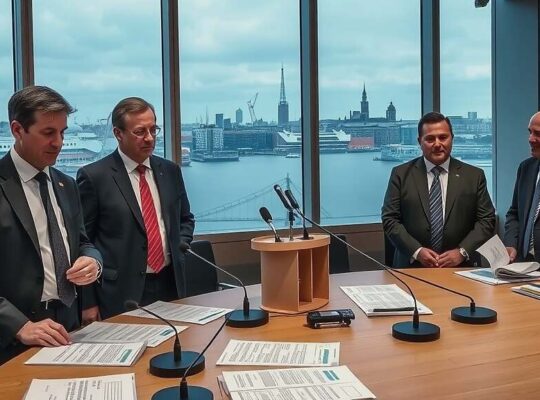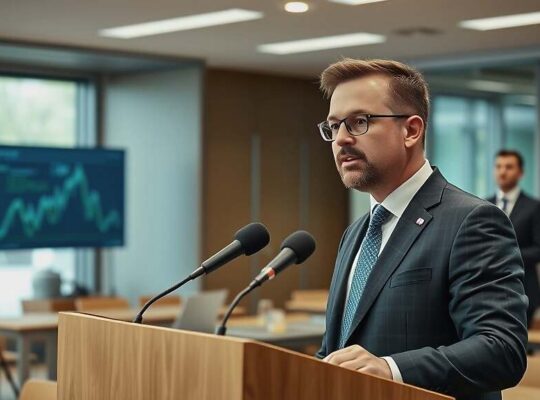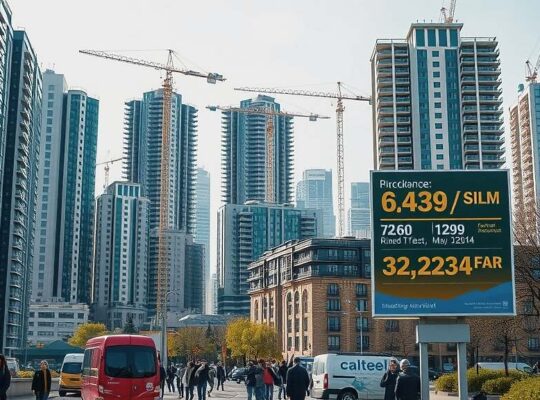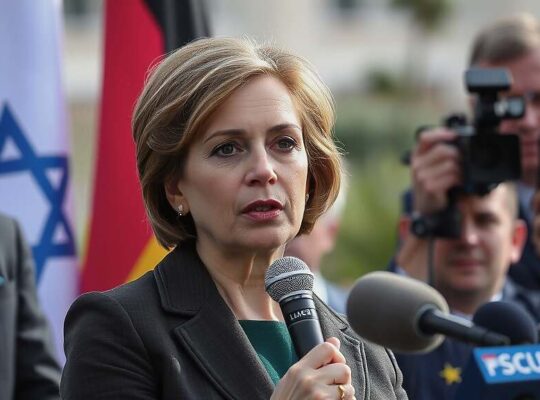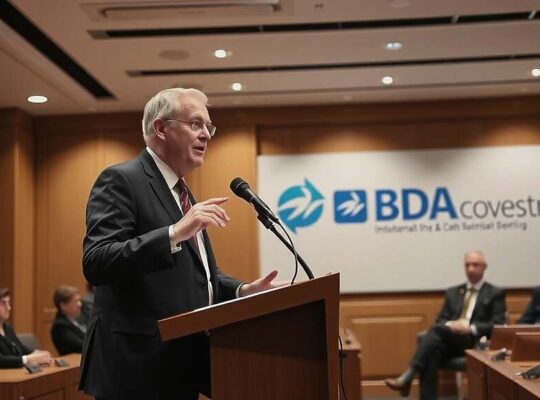The German steel industry faces an existential crisis, prompting Bremen’s Mayor Andreas Bovenschulte to publicly urge the federal government to bolster support for proposed EU import quotas. In an interview with the “Tagesspiegel”, Bovenschulte warned that without a significant reduction in steel imports, the viability of European steel production is severely threatened. He unequivocally demanded that Germany champion the proposal at the European level, prioritizing decisive action over protracted negotiations.
Bovenschulte’s critique didn’t end with the EU proposal. He challenged the government’s current approach to US tariffs on steel, dismissing it as “a mistake”. He insisted on reopening negotiations with Washington regarding the 50% tariff imposed on European steel, signaling a potential shift from a strategy of acquiescence. While acknowledging distorted competition due to Chinese state subsidies, Bovenschulte expressed skepticism towards blanket sanctions imposed on Chinese steel imports, advocating for a case-by-case assessment of when government support becomes illegitimate.
Mirroring recent calls from Finance Minister Lars Klingbeil, Bovenschulte forcefully advocated for an immediate cessation of Russian steel imports into Germany. He condemned the current situation, where individual EU member states have blocked a comprehensive ban, arguing it undermines European sanctions policy and indirectly funds Russia’s war against Ukraine. Bovenschulte deemed the continued imports “unsustainable.
Beyond trade tensions, Bovenschulte emphasized the crucial need for long-term energy security for German industry. He stressed the importance of guaranteeing a stable industrial electricity price of approximately five cents per kilowatt-hour. However, he cautioned that the currently planned three-year timeframe for this price guarantee is insufficient, failing to provide the investment security businesses require. Bovenschulte advocated for a commitment spanning at least ten years to truly foster industrial confidence and encourage sustained investment in the sector. His remarks highlight a growing internal debate within Germany’s ruling coalition regarding the balance between trade diplomacy, energy policy and the preservation of a vital industrial base.


